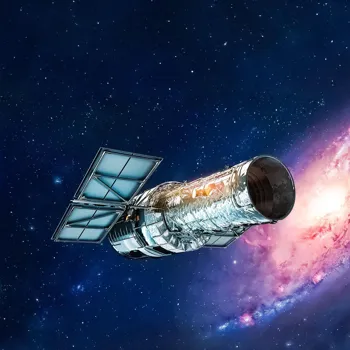Unveiling Exoplanets: Why Exploring Beyond Our Solar System is Crucial! Dive into the cosmic significance of exoplanet research
Isro’s Chandrayaan-3 mission has made us proud, landing on the moon and all.
But while looking up at our own celestial neighbour is fantastic, there's a whole universe of fascinating stuff happening way beyond our solar system – we're talking about exoplanets!
These are planets orbiting stars other than our own Sun, and studying them is not just some fancy science project. It’s actually super important for understanding our place in the cosmos and maybe even securing our future, you know?
Let’s break down seven solid reasons why exoplanet research matters, boss!
Finding Another Earth: Are We Alone, Bhai?
The biggest question, right? Are we the only ones chilling in the universe? Exoplanet research gives us a real shot at finding planets similar to Earth. Scientists are on the hunt for planets in the " Goldilocks zone " – not too hot, not too cold, just right for liquid water to exist on the surface.

Water is essential for life as we know it, so finding a planet with liquid water would be a massive deal, a real game-changer, understand? Finding another Earth-like planet could suggest possibilities of life outside of our solar system.
This would address fundamental questions about life's origins and prevalence in the universe.
Understanding Our Own Planet: Introspection Time, People!
You might think studying planets far away is irrelevant to us here on Earth. But understanding the diversity of exoplanets actually helps us understand our own planet better. By studying exoplanets, scientists can learn more about different planetary atmospheres, geological processes, and climates.
This knowledge can be applied to improve our climate models and better predict the future of Earth's environment, helping us deal with critical issues like climate change, you see?
We can analyse how different planetary conditions affect atmospheric composition, providing insights into the potential effects of greenhouse gases on planets.
Predicting Earth's Fate: Future is Here, but Uncertain!
Our Sun won't last forever, bhai. Eventually, it will become a red giant and possibly engulf the inner planets, including Earth. By studying exoplanetary systems at different stages of their evolution, we can get a glimpse into what might happen to our own solar system in the distant future.

This might sound like a far-off problem, but understanding the long-term fate of our planet can help us plan for the future, maybe even inspire humanity to eventually find a new home among the stars. Imagine what the future holds once we know if our future is bleak or bright.
Resource Hunt: Asteroids are Not the only Hope
Okay, this might sound a bit like science fiction, but hear me out. Some exoplanets might have valuable resources that we could potentially use in the future, assuming we ever develop the technology to reach them.

Think about rare earth elements or other precious materials that are becoming scarce on Earth. While interstellar travel is a huge challenge, exploring exoplanets from afar through advanced telescopes could give us clues about potential resources that could benefit humanity down the line.
It creates prospects for interstellar resource utilization, which could sustain progress in the long run.
Technological Advancement: Sky is the Limit, or is it?
Searching for and studying exoplanets pushes the boundaries of our technology. We need to develop new telescopes, more sensitive instruments, and innovative data analysis techniques to detect and characterise these distant worlds.

Innovations in telescope design, remote sensing, and data processing are inevitable when we try to unravel the mysteries of exoplanets, which improves life on Earth as well.
These technological advancements have spin-off benefits for other fields, like medicine, communications, and materials science. So, investing in exoplanet research is also an investment in innovation, samajh mein aaya?
Inspiring the Next Generation: Rocket Science is Cool!
Let's be real. Exoplanet research is cool. It captures the imagination and inspires young people to pursue careers in science, technology, engineering, and mathematics (STEM).
The quest to find other Earths and understand the universe is a powerful motivator, and it can help create a more scientifically literate and innovative society. Who knows, maybe the next great scientist or engineer is currently a kid who's fascinated by exoplanets!
We want the next generation to explore what we were not able to.
Expanding our Cosmic Perspective: We are a small Dot!
Studying exoplanets helps us to understand our place in the universe. The discovery of thousands of exoplanets has shown us that our solar system is not unique. Planets are common, and the universe is teeming with possibilities.
This knowledge can challenge our assumptions and broaden our perspective on what it means to be human and what our role is in the grand scheme of things. It humbles us, doesn't it?
So, the next time you hear about exoplanet research, remember it's not just about finding alien life.
It's about understanding our own planet, predicting our future, driving innovation, and inspiring the next generation. It’s about understanding the cosmos better, and that's something worth investing in, yaar!
AI Generated Content. Glance/InMobi shall have no liability for the content




















